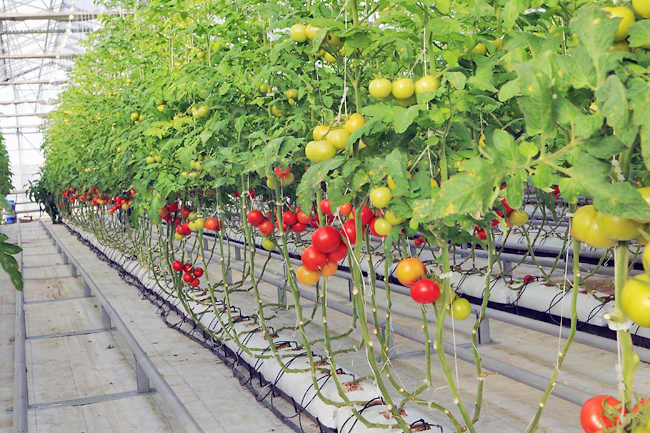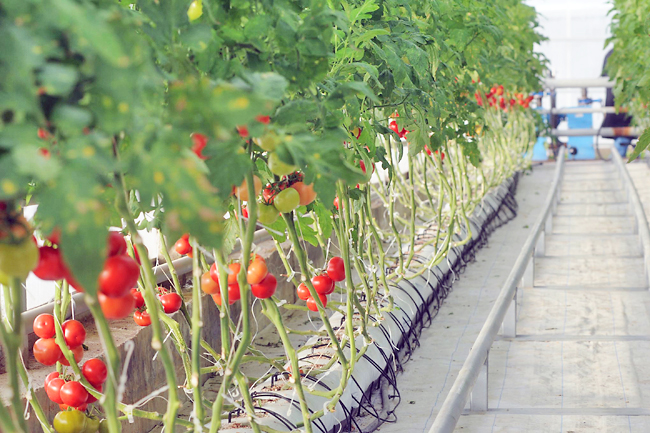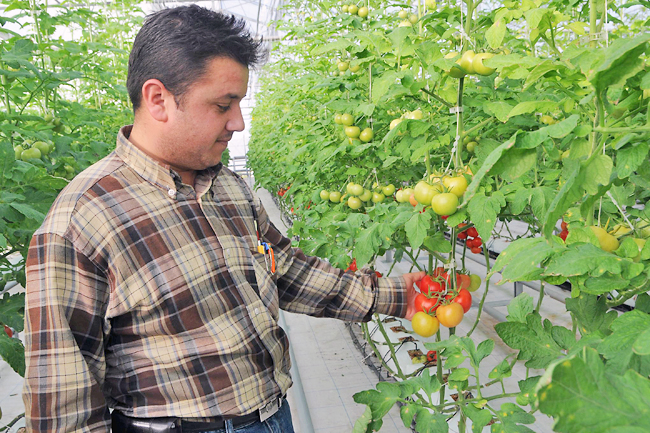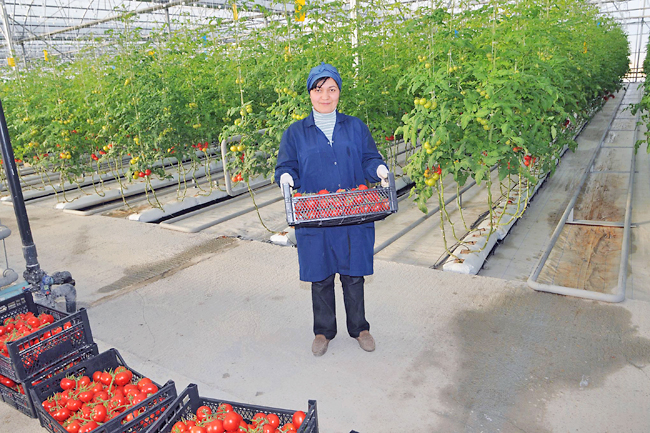ANKARA (XINHUA) – “If it weren’t for geothermal resources, we wouldn’t be doing greenhouse agriculture here. This is a natural blessing,” said Kozan Agriculture Chief Executive Officer Hakan Kozan, a producer from Afyonkarahisar, a province 250 kilometres west of the Turkish capital Ankara.
His farmland is located in the Sandikli district of Afyonkarahisar, an area well-known for its geothermal resources and hot springs, where even bus stops are heated with abundant thermal water.
“We produce natural cluster tomatoes and cucumbers on 130,000 square metres of greenhouses and export our produce to 18 countries, including Germany, the Netherlands, Romania, Bosnia and Herzegovina, and Qatar,” Kozan told Xinhua in a recent interview.
Geothermal energy stands as a key driver to boost agricultural production in Türkiye as it is one of the countries in Europe with the most geothermal resources, experts said.
In the Medium-Term Economic Programme unveiled in September last year by the Turkish government, there is a significant focus on geothermal drilling and geothermal use for agricultural zones.
The programme that covers economic targets 2024-2026 emphasises that investments in the construction of greenhouses in geothermal zones will be accelerated to ensure the supply of fresh fruits and vegetables.
“Türkiye is rich in geothermal resources, and the state is offering incentives and grants regarding greenhouse businesses that also create sustainable jobs for many people,” Kozan said.




Afyonkarahisar’s geothermal greenhouses, which primarily grow tomato bunches, have contributed greatly to employment in recent year, he added.
When combined with good agricultural practices, geothermal agriculture can offer a cost-friendly way of production that spans 11 months of the year, he noted.
Geothermal energy, which has more than 1,500 natural outlets in Türkiye, has the potential to reshape the country’s agricultural sector and is quite sufficient to grow agricultural produce in the country via greenhouses, said Geothermal Energy Association Chairman Ali Kindap.
Growing fruits and vegetables in every province can save the costs in transportation, Kindap was quoted as saying by the Hurriyet Daily News in October last year.
Currently, there are over 5,200 acres of geothermal greenhouses in Türkiye, but Kindap believes the country can expand the capacity to 100,000 acres within a decade.
He added that countries with low geothermal resources are far ahead of Türkiye, although the country is leading in Europe regarding geothermal resource abundance.
Agricultural expert Refik Ivmer from Ankara, echoed Kindap’s remarks, saying that Türkiye has a big potential for geothermal farming.
“Geothermal agriculture can provide a solution to the climate crisis. With geothermal agriculture, you can cultivate farm produce regardless of climatic conditions,” he said.
Ivmer explained that there are many advantages of heating greenhouses with geothermal energy as the heating of greenhouses accounts for 60 to 70 per cent of the total production cost.
“Newly built modern technological greenhouses are heated with geothermal resources, decreasing the energy cost by 50 per cent,” he pointed out.
He added that using geothermal resources rather than fossil fuels also contributed to a decrease in carbon emissions.
The Western Aegean region of Türkiye is home to the majority of the country’s current geo-
thermal projects.
However, new sites have been found in the less industrialised eastern provinces of Agri and Van in the past few years, raising hope for soilless agriculture and the cultivation of vegetables in thermally-heated greenhouses.






